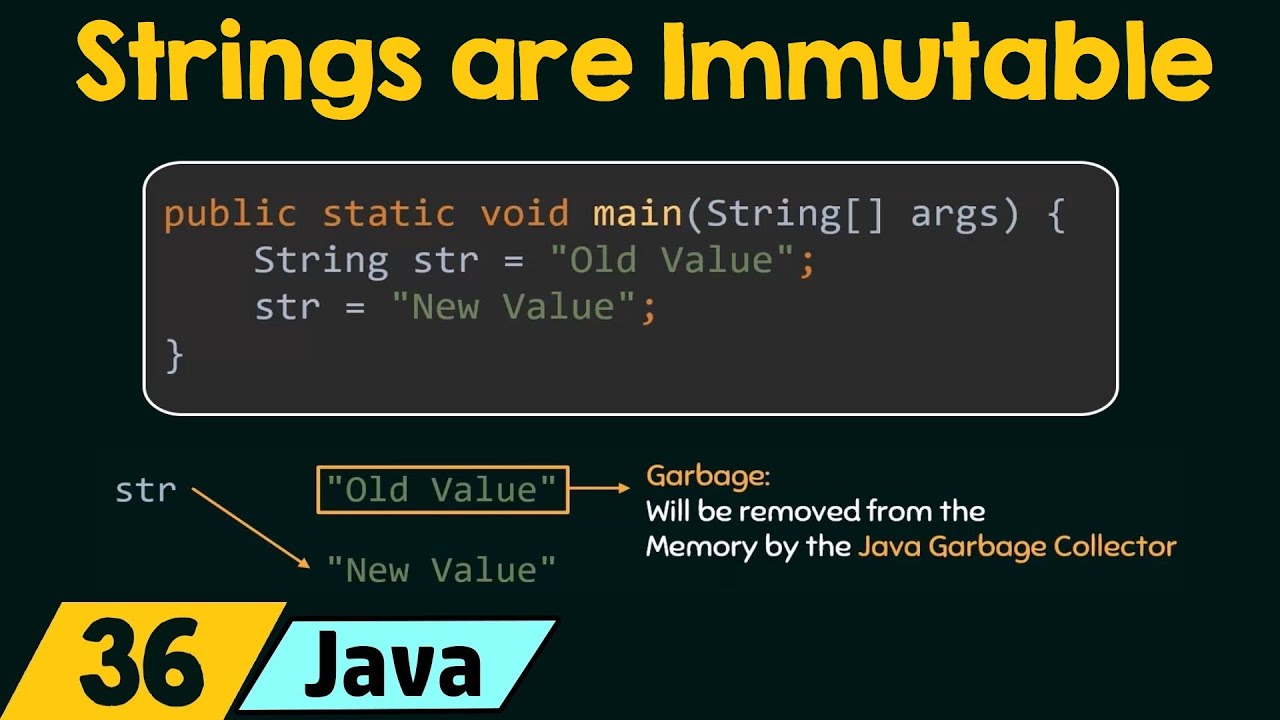Why String is immutable in Java with example
Why String is immutable in Java with example

In Java, the String class is immutable by design. This means that once a String object is created, its contents cannot be changed or modified.
The reason behind this decision lies in the concept of thread safety and data consistency. When multiple threads are accessing the same mutable object simultaneously, it can lead to unexpected behavior and errors. In contrast, an immutable object ensures that each thread gets a snapshot of the object's state, eliminating the need for synchronization mechanisms like locks or atomic variables.
Let's consider an example to illustrate this concept:
Suppose we have two threads, Thread A and Thread B, which share a common String object. Initially, the string is set to "Hello". Both threads can modify their own copy of the string. However, if both threads try to append " World" to the end of the original string simultaneously, the outcome would be unpredictable.
In this scenario, Thread A might modify the string to become "Hello World", while Thread B modifies it to become "Hello Abc World". The final state of the string would depend on the order in which the threads executed their modifications. This is an undesirable behavior that can lead to bugs and inconsistencies.
By making String immutable, Java ensures that each thread works with its own copy of the original string, eliminating any potential issues related to concurrent modification.
Here's a simple example to demonstrate this:
javapublic class ImmutableStrings { public static void main(String[] args) { String myString = "Hello"; Thread A = new Thread(() -> System.out.println(myString + " World")); // Thread A tries to modify the original string Thread B = new Thread(() -> System.out.println(myString + " Abc")); // Thread B also tries to modify the original string A.start(); B.start(); // Each thread gets its own copy of the original string, ensuring the output remains predictable and consistent. } }
In this code snippet, both threads try to append a message to the original myString. Because String is immutable, each thread works with its own copy of "Hello". This ensures that the output will always be either "Hello World" or "Hello Abc", depending on the order in which the threads executed.
In summary, Java's decision to make String immutable is a design choice aimed at promoting thread safety and data consistency. By ensuring that each thread works with its own copy of the original string, we can avoid unexpected behavior and ensure predictable output.
Is String mutable in Java * True False?
I'll respond in English, just this once.
In Java, the String class is immutable by default. This means that once a String object is created, its contents cannot be changed or modified.
When you try to modify a String object in Java, what happens behind the scenes is actually creating a new String object with the desired changes and assigning it to a new variable. The original String object remains unchanged.
For example, consider this code:
javaString s = "Hello"; s += " World!";
What looks like modifying the original String object is actually creating a new String object with the concatenated string "Hello World!" and assigning it to a new variable. The original String object remains as "Hello".
This immutability of String objects in Java has significant performance implications, particularly when working with large strings or performing repeated string operations. For instance:
StringBuilder or StringBuffer can significantly reduce the number of intermediate string objects created. Use caching mechanisms: Many libraries and frameworks provide caching mechanisms for frequently used strings to minimize the creation of new objects.
Immutability also makes Java's String class thread-safe, as no two threads can modify a String object simultaneously. This simplifies concurrent programming in multithreaded applications.
While some might argue that immutability is a limitation, it has many benefits:
Easier memory management: With immutable strings, the garbage collector's task becomes simpler, reducing memory-related issues. Improved security: Immutable strings make it more difficult for attackers to manipulate or corrupt your code's string operations. Predictable behavior: Immutability ensures thatString operations always produce expected results, which can be crucial in certain applications.
In summary, Java's String class is indeed immutable by default, and this design choice has far-reaching implications on performance, concurrency, memory management, security, and predictability.





























